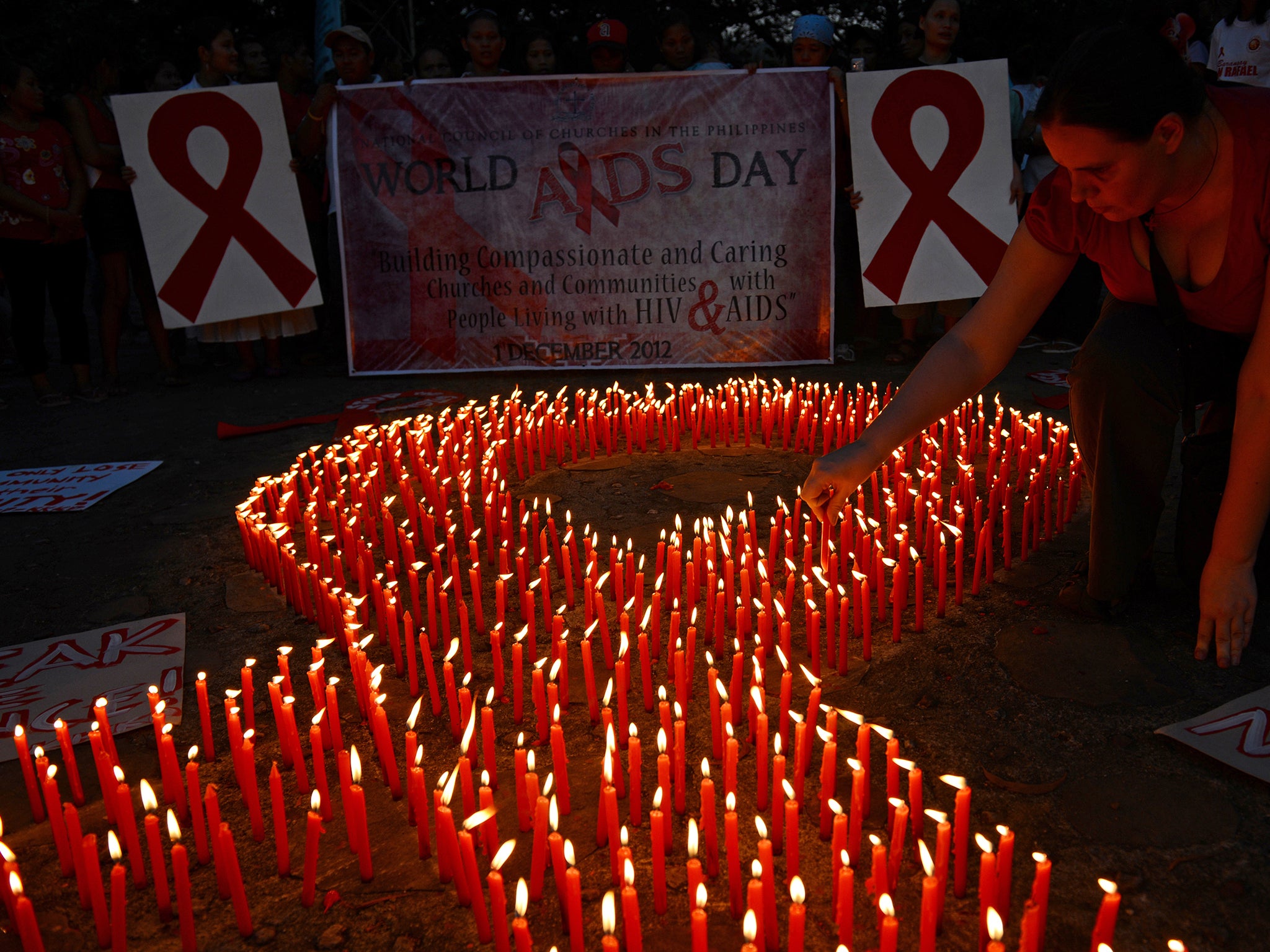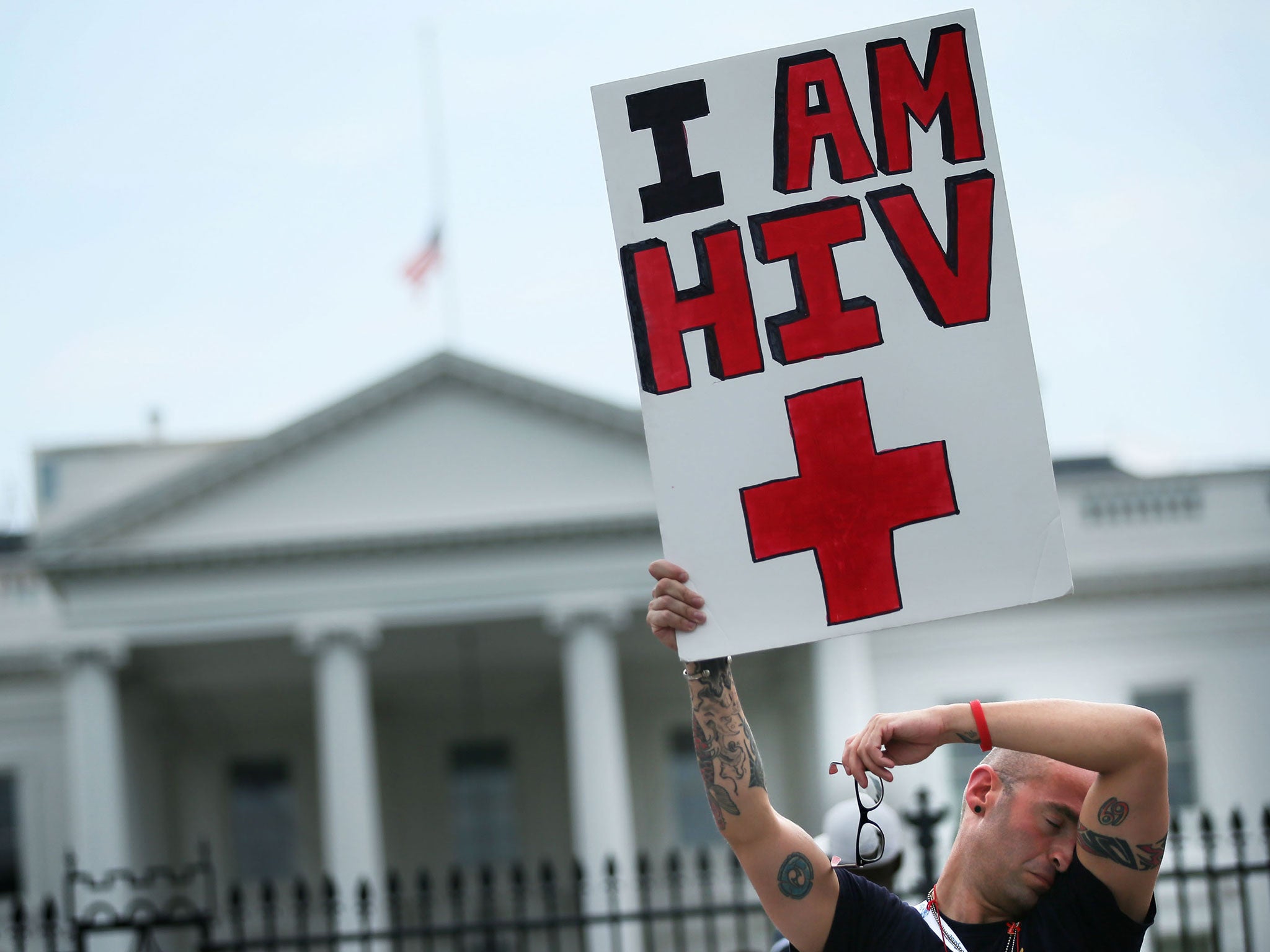HIV ability to cause Aids is 'becoming weaker' as it evolves to develop resistance to patients' immunity, study finds
Scientists believe a less virulent HIV could be one of a number of factors contributing to a turning of the deadly pandemic

Your support helps us to tell the story
From reproductive rights to climate change to Big Tech, The Independent is on the ground when the story is developing. Whether it's investigating the financials of Elon Musk's pro-Trump PAC or producing our latest documentary, 'The A Word', which shines a light on the American women fighting for reproductive rights, we know how important it is to parse out the facts from the messaging.
At such a critical moment in US history, we need reporters on the ground. Your donation allows us to keep sending journalists to speak to both sides of the story.
The Independent is trusted by Americans across the entire political spectrum. And unlike many other quality news outlets, we choose not to lock Americans out of our reporting and analysis with paywalls. We believe quality journalism should be available to everyone, paid for by those who can afford it.
Your support makes all the difference.The evolution of HIV has reduced its ability to cause Aids in patients, a study of more than 2,000 women in Africa has found.
Scientists believe a less virulent HIV could be one of a number of factors contributing to a turning of the deadly pandemic.
According to the report, developing resistance to patients' natural immunity is causing the virus to become less deadly.
Researchers, led by the University of Oxford, have declared the development is making "an important contribution" in the fight against HIV.
Widespread access to anti-retroviral drugs has also been slowing HIV's progress to Aids, the scientists found.
The research involved 2,000 women with chronic HIV infection in South Africa and Botswana - two of the countries among the worst affected.
The study looked at a gene that gives patients some protection against the effects of HIV.
In Botswana, the virus has adapted to resist that gene's immunity, but this evolution has led to a reduced ability to replicate. This means HIV has become less infectious and therefore takes longer to cause Aids.
In the second part of the study, published in the journal Proceedings of the National Academy of Sciences, researchers found that treating the sickest HIV patients, whose immune system had been weakened by the infection, with anti-retroviral therapy, accelerated the evolution of HIV variants with a weaker ability to replicate.

Lead scientist Professor Phillip Goulder, from the University of Oxford, said: "This research highlights the fact that HIV adaptation to the most effective immune responses we can make against it comes at a significant cost to its ability to replicate.
"Anything we can do to increase the pressure on HIV in this way may allow scientists to reduce the destructive power of HIV over time."
Mike Turner, head of infection and immunobiology at the Wellcome Trust, which funded the research, said: "The widespread use of ART is an important step towards the control of HIV.
"This research is a good example of how further research into HIV and drug resistance can help scientists to eliminate HIV."

Some 35 million people currently have HIV and Aids has killed around 40 million people since it began spreading 30 years ago.
Campaigners noted on Monday that for the first time in the epidemic's history, the annual number of new HIV infections is lower than the number of HIV positive people being added to those receiving treatment, meaning a crucial tipping point has been reached in reducing deaths from Aids.
Additional reporting by PA and Reuters
Join our commenting forum
Join thought-provoking conversations, follow other Independent readers and see their replies
Comments